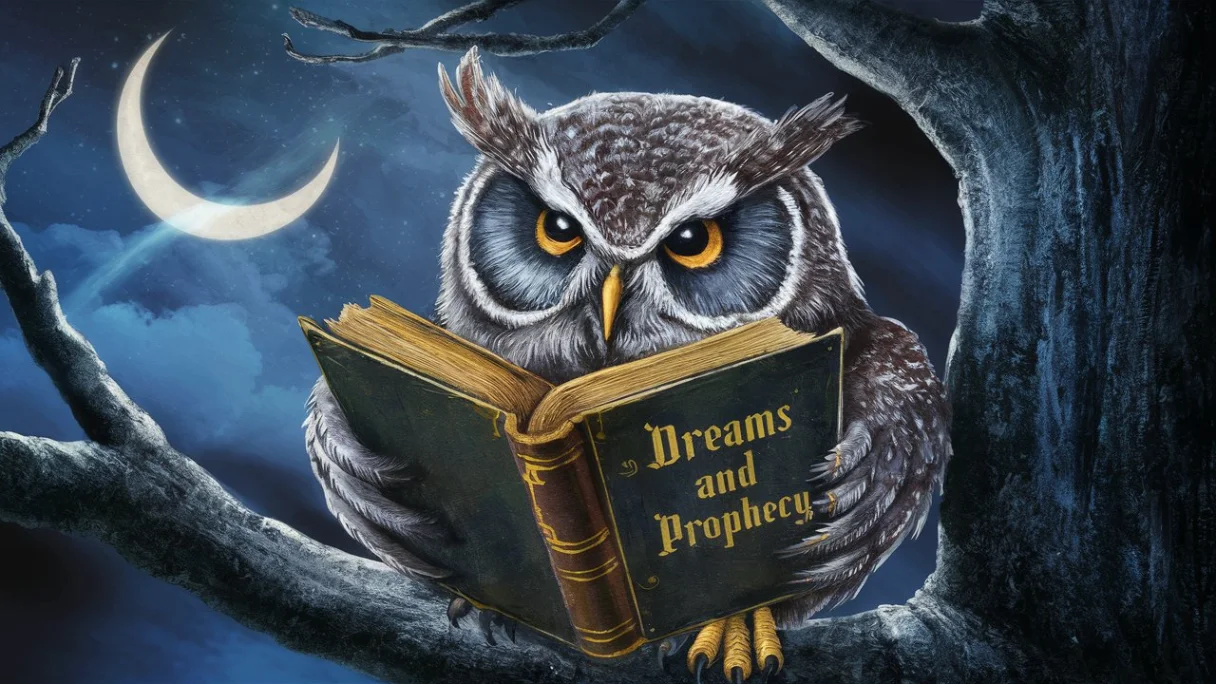Dreams have always been a fascinating and mysterious aspect of the human experience. Throughout history, people have sought to understand the meaning behind their dreams, often wondering if they hold prophetic or predictive power. In this blog post, we’ll explore the connection between dreams and prophecy, examining whether dreams can indeed predict the future.
The Nature of Dreams
Before we dive into the potential prophetic nature of dreams, let’s first understand what dreams are. Dreams are a series of thoughts, images, and sensations that occur in our minds during sleep. They can be vivid, surreal, and often emotionally charged. While the exact purpose of dreams is still debated, many experts believe they play a role in memory consolidation, emotional regulation, and problem-solving.
Some common characteristics of dreams include:
- Vivid imagery and sensory experiences
- Unusual or illogical sequences of events
- Heightened emotions and feelings
- Incorporation of recent experiences or memories
Dreams in Different Cultures

The interpretation and significance of dreams vary across different cultures and traditions. Many ancient civilizations believed that dreams were messages from the gods or a way to access divine knowledge. For example:
- In ancient Egypt, dreams were considered to be a means of communication with the gods and the deceased.
- In ancient Greece, dreams were believed to be prophetic, and there were even temples dedicated to dream interpretation.
- In many Native American cultures, dreams are seen as a way to connect with the spirit world and gain guidance.
These cultural beliefs demonstrate the long-standing fascination humans have had with dreams and their potential meaning.
The Science of Dreams

While dreams have been the subject of spiritual and mystical interpretations, modern science has also sought to understand their nature and function. Research has shown that dreams occur primarily during the Rapid Eye Movement (REM) stage of sleep, characterized by increased brain activity and vivid imagery.
Some scientific theories about the purpose of dreams include:
- Memory consolidation: Dreams may help the brain process and store important information from the day.
- Emotional regulation: Dreams may serve as a way for the brain to work through and process emotional experiences.
- Problem-solving: Dreams may provide a space for the brain to explore creative solutions to problems or challenges.
However, the exact mechanisms behind dreaming and their potential predictive power remain largely unknown.
Prophetic Dreams in History and Literature

Throughout history, there have been numerous accounts of individuals claiming to have had prophetic dreams. These dreams are often associated with significant events, both personal and historical. Some famous examples include:
- Abraham Lincoln’s prophetic dream: President Lincoln reportedly had a dream about his own assassination a few days before it occurred.
- Mark Twain’s dream of his brother’s death: Twain dreamt of his brother’s death in a steamboat explosion, which later came true.
- The Bible: The Bible contains several accounts of prophetic dreams, such as Joseph interpreting Pharaoh’s dreams and predicting seven years of abundance followed by seven years of famine.
While these accounts are intriguing, it’s important to approach them with a critical eye and consider the possibility of coincidence or retrospective interpretation.
Can Dreams Predict the Future?
The question remains: Can dreams predict the future? The answer is not a simple yes or no. While some individuals claim to have experienced prophetic dreams, there is currently no scientific evidence to support the idea that dreams can consistently and accurately predict future events.
However, some experts suggest that dreams may tap into our intuition and subconscious mind, allowing us to process information and insights that we might not be fully aware of in our waking state. This could potentially lead to dreams that seem to “predict” future events, but are based on our own knowledge, observations, and intuition.
It’s also important to consider the role of confirmation bias in the interpretation of dreams. When we have a dream that seems to come true, we may be more likely to remember and attribute significance to it, while forgetting the many dreams that don’t have any apparent prophetic quality.
As an example, let’s say you dream about a friend you haven’t spoken to in years. The next day, you receive a call from that friend out of the blue. While it might seem like your dream predicted this event, it’s more likely that your subconscious mind was processing memories or thoughts related to that friend, which then manifested in your dream.
Interpreting Your Dreams
If you’re interested in exploring the potential meaning behind your dreams, there are several approaches you can take:
- Keep a dream journal: Write down your dreams as soon as you wake up, including any details, emotions, and symbols that stand out to you.
- Look for patterns and themes: Over time, you may notice recurring themes or symbols in your dreams that could provide insight into your subconscious mind.
- Consider your waking life: Often, dreams are a reflection of our waking experiences, thoughts, and emotions. Try to connect the dots between your dreams and what’s happening in your life.
- Seek professional guidance: If you’re struggling to make sense of your dreams or feel that they are impacting your well-being, consider speaking with a therapist or dream analyst who can provide additional insight and support.
Remember, the interpretation of dreams is highly personal and subjective. What a dream means to you may be different from what it means to someone else.
The Role of Intuition
While dreams themselves may not have a direct prophetic quality, they can be a powerful tool for tapping into our intuition and inner wisdom. By paying attention to our dreams and the feelings they evoke, we may be able to gain valuable insights into our lives and the decisions we face.
Intuition is often described as a “gut feeling” or a sense of knowing something without conscious reasoning. It’s a form of inner guidance that can be cultivated and strengthened over time. Dreams, in turn, can be a way for our intuition to communicate with us, providing symbols, emotions, and messages that we can interpret and apply to our waking lives.
Conclusion
In conclusion, while dreams may not have a consistently prophetic quality, they remain a fascinating and meaningful aspect of the human experience. By exploring our dreams and the emotions they evoke, we can gain valuable insights into our subconscious minds and tap into our intuition.
Whether you believe in the prophetic power of dreams or simply see them as a reflection of your own thoughts and experiences, there is no denying the rich and complex nature of the dreaming world. So keep dreaming, keep exploring, and trust in the wisdom that lies within.
| Key Takeaways | |
|---|---|
| Dreams are a natural and fascinating aspect of the human experience. | While some people believe dreams can be prophetic, there is no scientific evidence to support this claim consistently. |
| Dreams may reflect our subconscious thoughts, emotions, and intuition. | Interpreting dreams is a highly personal and subjective process. |
| Keeping a dream journal and exploring recurring themes can provide valuable insights. | Cultivating intuition and self-awareness can help us navigate both our dreaming and waking lives with greater wisdom and clarity. |
Remember, the world of dreams is a vast and mysterious landscape. Approach it with curiosity, openness, and a willingness to learn from the messages that arise from within.
